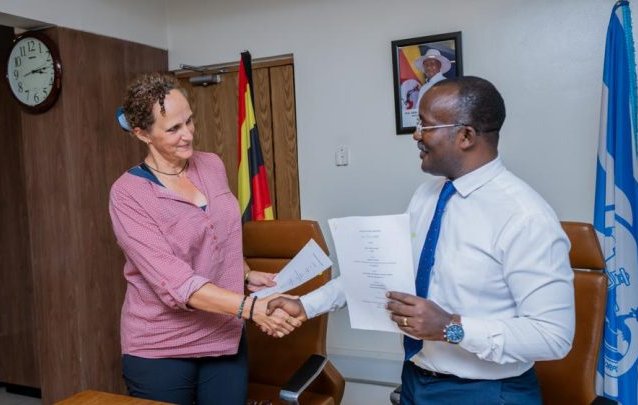Arua, Uganda — A €22.6 million project aimed at improving water, sanitation, and urban infrastructure for refugees and host communities in Northern Uganda has been launched following a grant and implementation agreement signed by the Ugandan government through the National Water and Sewerage Corporation (NWSC), in partnership with the German Government via KfW Development Bank and the European Union.
The five-year initiative, officially titled "Climate Resilience and Water Infrastructure for Refugees and Host Communities in Northern Uganda," will focus on enhancing access to clean water and sanitation in Arua City and the neighboring districts of Maracha and Terego. It will also support broader urban development to improve the quality of life for both refugee and host populations.
Speaking at the signing ceremony in Kampala on Wednesday, NWSC Managing Director Dr. Eng. Silver Mugisha expressed gratitude to the development partners and emphasized the importance of collective action. “The Government of Uganda, working through NWSC, is implementing this project to support refugee settlements and the surrounding host communities,” he said. He noted that the collaborative approach, which involves Arua City Council and the Ministry of Water and Environment, is key to achieving lasting impact.
Andrea Johnston, KfW’s Head of Governance and Stabilization for Water in Eastern Africa and the African Union, reaffirmed the bank’s commitment to Uganda’s development goals. “We have implemented a number of projects with NWSC and reiterate our unwavering support towards their water and sanitation for all agenda,” she said. Johnston highlighted the importance of supporting refugee communities in Arua, calling them a top priority for the project.
The project is financed through a €9 million grant from the German Government via KfW, a €13.6 million grant from the European Union, and a €1.385 million contribution from the Government of Uganda and NWSC. It will involve the rehabilitation and expansion of the existing water treatment plant and pumping mains, extension of water supply lines by approximately 70 kilometers, and upgrades to sewer networks and lifting stations. Additional components include improvements to stormwater drainage, solid waste management, and the development of physical urban plans to guide sustainable city growth.
Dr. Mugisha confirmed that the procurement process for a consultant to oversee the design and construction phases has already begun, signaling the start of implementation on the ground.
